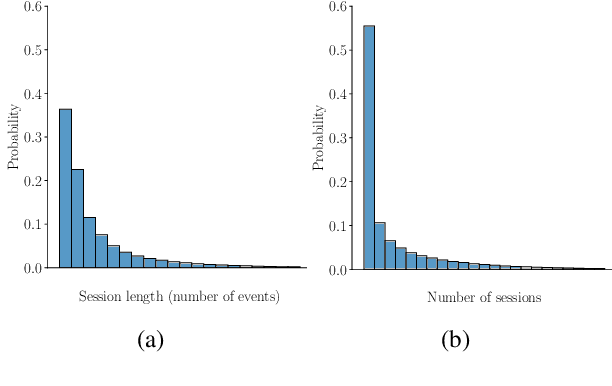Maryam Honari-Jahromi
Understanding Players as if They Are Talking to the Game in a Customized Language: A Pilot Study
Oct 24, 2024



Abstract:This pilot study explores the application of language models (LMs) to model game event sequences, treating them as a customized natural language. We investigate a popular mobile game, transforming raw event data into textual sequences and pretraining a Longformer model on this data. Our approach captures the rich and nuanced interactions within game sessions, effectively identifying meaningful player segments. The results demonstrate the potential of self-supervised LMs in enhancing game design and personalization without relying on ground-truth labels.
player2vec: A Language Modeling Approach to Understand Player Behavior in Games
Apr 08, 2024Abstract:Methods for learning latent user representations from historical behavior logs have gained traction for recommendation tasks in e-commerce, content streaming, and other settings. However, this area still remains relatively underexplored in video and mobile gaming contexts. In this work, we present a novel method for overcoming this limitation by extending a long-range Transformer model from the natural language processing domain to player behavior data. We discuss specifics of behavior tracking in games and propose preprocessing and tokenization approaches by viewing in-game events in an analogous way to words in sentences, thus enabling learning player representations in a self-supervised manner in the absence of ground-truth annotations. We experimentally demonstrate the efficacy of the proposed approach in fitting the distribution of behavior events by evaluating intrinsic language modeling metrics. Furthermore, we qualitatively analyze the emerging structure of the learned embedding space and show its value for generating insights into behavior patterns to inform downstream applications.
 Add to Chrome
Add to Chrome Add to Firefox
Add to Firefox Add to Edge
Add to Edge